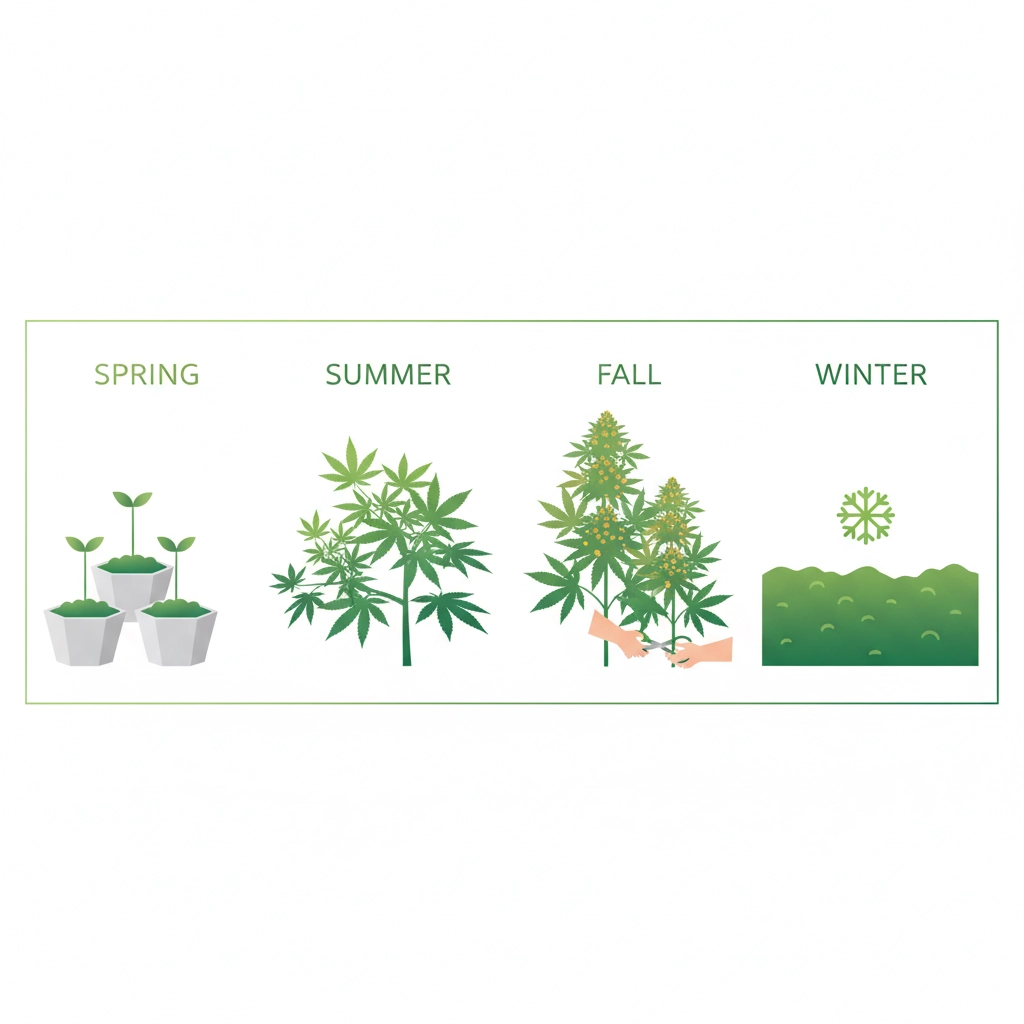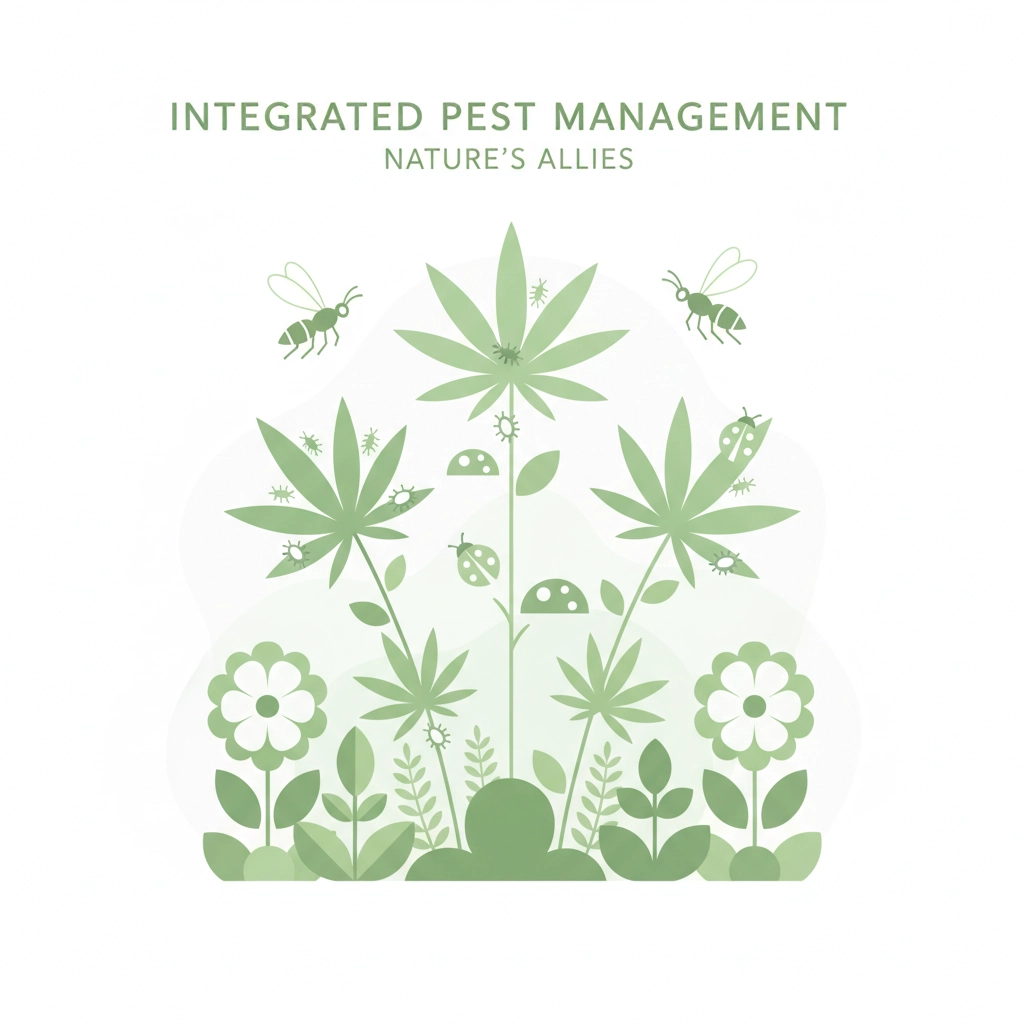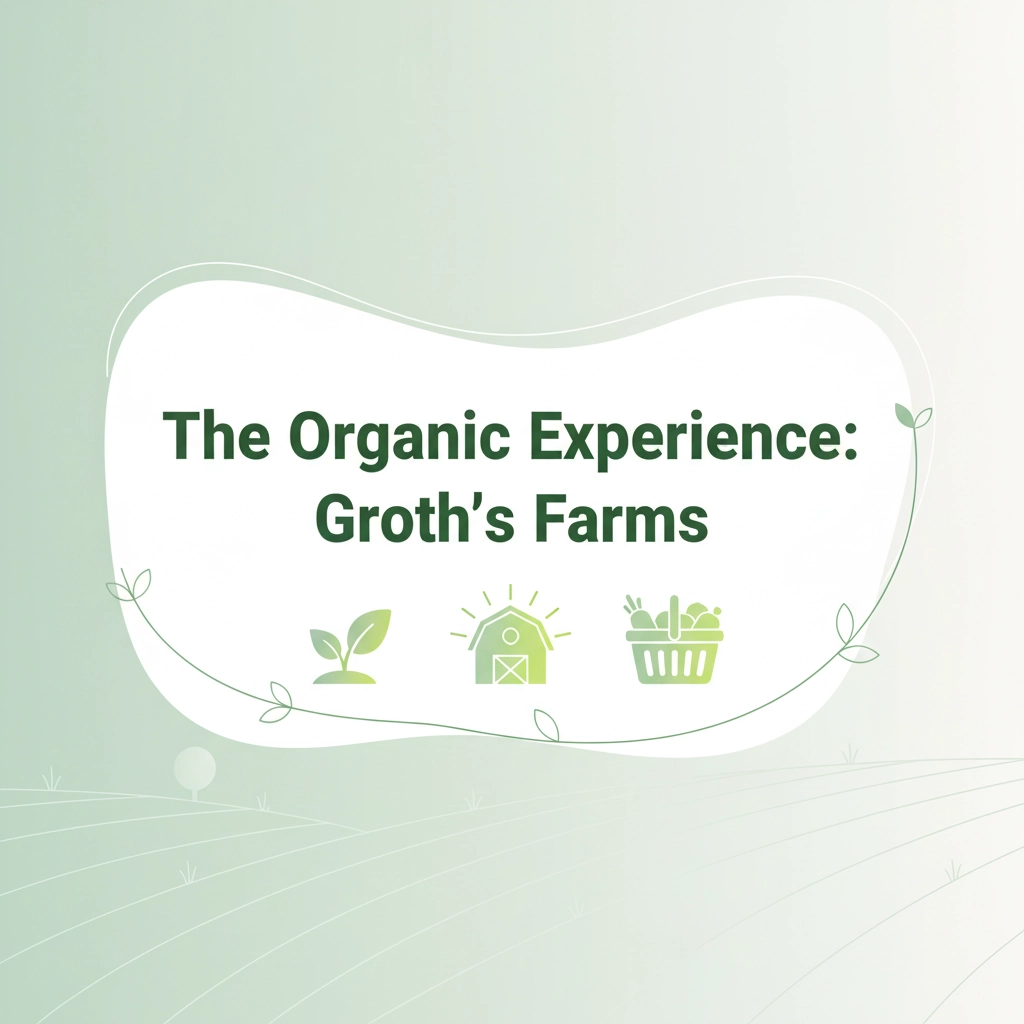When you step onto Groth's Farms, you're not just visiting a cannabis cultivation facility: you're experiencing the heart of what makes our organic approach fundamentally different. Our commitment to organic farming practices runs deeper than simple certification requirements. It represents a philosophy that connects soil health, plant vitality, and community wellness in ways that directly impact the quality of every product that reaches our customers.
The Foundation: Living Soil Systems
Organic cannabis cultivation begins with understanding that healthy plants require healthy soil ecosystems. At Groth's Farms, we maintain living soil systems that have been developed and refined over multiple growing seasons. These soil systems contain beneficial microorganisms, mycorrhizal fungi, and organic matter that create a symbiotic relationship with cannabis root systems.
The difference between conventional growing media and living soil becomes apparent when examining plant development. Cannabis plants grown in living soil systems develop more complex terpene profiles, enhanced cannabinoid production, and improved overall plant structure. These improvements occur because the plant can access nutrients in their most bioavailable forms, delivered through natural soil processes rather than synthetic fertilizer applications.

Our soil preparation begins months before planting. Compost materials, aged organic matter, and beneficial amendments are combined and allowed to decompose naturally. This process creates the foundation for sustainable cultivation that produces consistent results season after season. The investment in soil health pays dividends in plant quality, reduced input costs, and environmental sustainability.
Seasonal Rhythms and Plant Selection
Cannabis cultivation at Groth's Farms follows natural seasonal patterns that optimize plant development and product quality. Spring preparation involves soil testing, amendment applications, and greenhouse preparation for seedling development. Summer growing seasons focus on vegetative growth, training techniques, and natural pest management approaches.
Our strain selection process considers multiple factors including adaptation to local growing conditions, organic compatibility, and market demand. Certain cultivars perform exceptionally well in organic systems, developing enhanced flavor profiles and more balanced cannabinoid ratios. These varieties often require longer cultivation periods but produce superior finished products that reflect the additional time and attention invested in their development.
Fall harvest periods represent the culmination of months of careful cultivation. Timing harvest windows to coincide with optimal trichome development ensures maximum potency and flavor preservation. Post-harvest processing follows organic principles, avoiding synthetic additives or artificial preservation methods that could compromise product integrity.
Natural Pest Management and Plant Health
Organic cannabis cultivation requires sophisticated approaches to pest management that work with natural systems rather than against them. Integrated pest management strategies combine biological controls, companion planting, and environmental modifications to maintain healthy plant populations without synthetic pesticide applications.
Beneficial insect populations play crucial roles in maintaining ecological balance within cultivation facilities. Predatory mites, parasitic wasps, and other beneficial species are introduced and maintained to control potential pest populations before they can establish damaging infestations. These biological control systems require careful monitoring and environmental management but provide sustainable pest control that doesn't compromise product safety or quality.

Companion planting strategies incorporate flowering plants, herbs, and other species that provide habitat for beneficial insects while improving soil health and biodiversity. These polyculture approaches create more resilient growing systems that can adapt to environmental changes and seasonal variations more effectively than monoculture systems.
Environmental controls including air circulation, humidity management, and temperature regulation create conditions that favor cannabis development while discouraging pest and pathogen establishment. These integrated approaches require more initial planning and ongoing management but produce healthier plants and cleaner finished products.
Community Connections and Local Impact
Groth's Farms maintains strong connections with the local community through multiple channels that extend beyond simple business transactions. Local sourcing of organic amendments, compost materials, and other inputs supports regional agricultural businesses while reducing transportation impacts and supply chain dependencies.
Educational initiatives provide community members with opportunities to learn about organic cultivation practices, sustainable agriculture, and cannabis horticulture. These programs help dispel misconceptions about cannabis cultivation while demonstrating the agricultural expertise required for successful organic production.
Employment opportunities at Groth's Farms provide local jobs that require specialized skills and offer competitive compensation. Training programs help develop expertise in organic cultivation, quality control, and sustainable agricultural practices that transfer to other agricultural applications.
Partnership relationships with local educational institutions, agricultural organizations, and environmental groups create collaborative opportunities that benefit the broader community while advancing sustainable cultivation practices. These partnerships often result in research projects, educational initiatives, and demonstration programs that showcase organic cannabis cultivation methods.
Processing and Quality Preservation
Organic cultivation extends through every stage of processing and product development. Post-harvest handling follows organic protocols that preserve the natural compounds and characteristics developed during cultivation. Drying processes utilize controlled environmental conditions that maintain terpene profiles and prevent degradation of sensitive compounds.
Trimming processes emphasize hand-trimming techniques that preserve trichome integrity and maintain visual appeal. Machine trimming, while more efficient, can damage delicate trichomes and reduce product quality. Hand-trimming requires more labor but produces superior finished products that reflect the care invested throughout the cultivation process.

Curing processes allow natural enzymatic processes to develop flavor profiles and improve product stability. Extended curing periods, often lasting several weeks, result in smoother consumption experiences and enhanced flavor development. These natural processes cannot be rushed without compromising product quality, requiring patience and careful environmental control.
Quality testing throughout processing stages ensures that organic products meet safety standards while maintaining the characteristics that distinguish organic cannabis from conventional alternatives. Testing protocols verify absence of synthetic pesticides, heavy metals, and other contaminants while confirming cannabinoid and terpene profiles.
The Consumer Experience Difference
Cannabis products cultivated using organic methods provide distinctly different consumption experiences compared to conventionally grown alternatives. Flavor profiles tend to be more complex and nuanced, reflecting the full spectrum of terpenes developed through natural cultivation processes. These enhanced flavor profiles contribute to more satisfying consumption experiences for both recreational and medical users.
Cannabinoid profiles in organic cannabis often show more balanced ratios of various compounds, including minor cannabinoids that contribute to entourage effects. These complex chemical profiles result from the plant's ability to fully express its genetic potential when grown in optimal organic conditions without synthetic interference.
User feedback consistently indicates preferences for organic cannabis products when quality differences are apparent. Smoother combustion, cleaner flavor profiles, and more balanced effects reflect the absence of synthetic residues and the presence of beneficial compounds developed through organic cultivation.
Sustainability and Future Growth
Organic cultivation practices at Groth's Farms contribute to long-term sustainability goals that extend beyond immediate production objectives. Soil health improvements, reduced synthetic input dependencies, and enhanced biodiversity create agricultural systems that become more productive and resilient over time.
Water conservation strategies, renewable energy utilization, and waste reduction programs demonstrate environmental stewardship while reducing operational costs. These sustainability initiatives align with consumer values while creating operational efficiencies that support business viability.
Innovation opportunities in organic cultivation continue expanding as research develops new techniques and technologies compatible with organic principles. Precision agriculture tools, advanced monitoring systems, and biological input developments offer possibilities for improved efficiency while maintaining organic integrity.
The organic experience at Groth's Farms represents a commitment to quality, sustainability, and community benefit that distinguishes our approach from conventional cultivation methods. Every aspect of our operation reflects these values, from soil preparation through final product delivery.
Visit our dispensary to experience the difference that organic cultivation makes in cannabis quality and discover how our farming practices translate into superior products for your cannabis journey.

